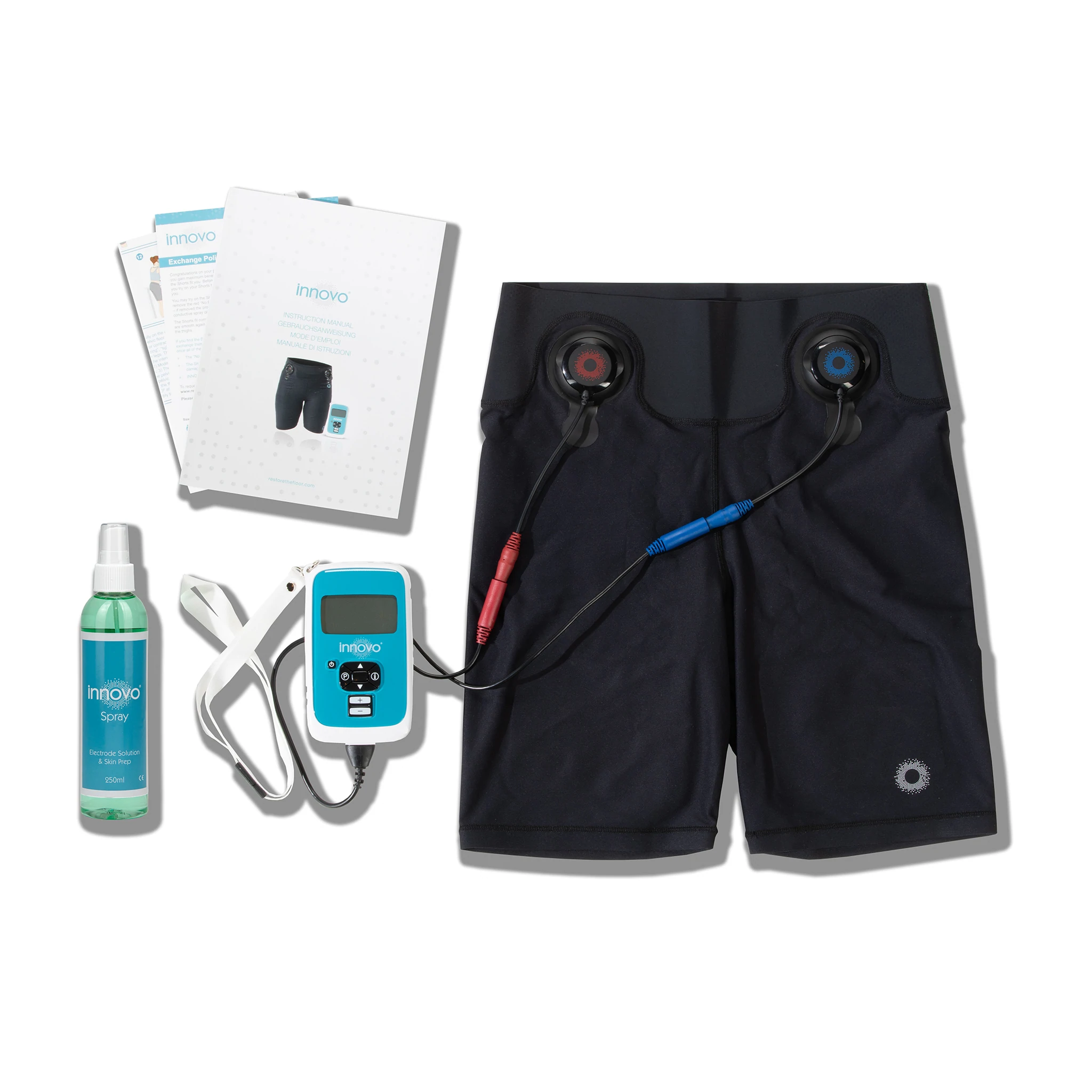An expensive pair of shorts promises to cure bladder leaks by using electrical stimulation to produce pelvic floor contractions, essentially doing the Kegel exercises for you. The science is insufficient and the marketing is misleading.
My mailbox is a good source of questionable claims. The other day I received a spiffy ad for Innovo.
Innovo was invented by a physical therapist. It features fitted shorts that provide electrical stimulation to make the pelvic floor muscles contract, essentially doing the Kegel exercises for you. It is “FDA cleared…The shorts should be worn for 30 minutes a day, 5 days a week” but that doesn’t mean the same as “FDA approved” and it doesn’t mean the FDA has evaluated it for effectiveness.
The Innovo ad says that research showed that nearly 50% of women can’t do a Kegel exercise correctly. I was unable to verify that figure. A PT website estimated 30%. A 2013 study found that most women could do it correctly after a simple verbal cue, and many more did it correctly after brief instruction.
How common are bladder leaks? The Innovo ad says 1 in 3 women, but the incidence increases with age and can be much higher in older women. A poll showed a higher overall percentage of women reported bladder leaks but also found that some women didn’t consider it a significant problem and had not mentioned it to their doctors.
Innovo claims to “Eliminate leaks in 12 weeks…the only clinically proven device that eliminates bladder leaks for good.” It says that Innovo will eliminate the need for pads, liners, and leakproof underwear by fixing the underlying problem of weak pelvic floor muscles. It cites a single research study that they say showed 87% of women were defined as dry or nearly dry after 12 weeks of treatment with Innovo. I was able to locate that study. It compared the Innovo device to a modified device “programmed to produce a lower dose of pelvic floor muscle stimulation with a strong sensory response compared with the active device.” It did not say 87% of women were improved. The results were actually negative. There were only non-significant differences for most of the endpoints studied. And the company website ignores the “nearly dry” category and implies that all 87% were “dry”.
They say 98% of doctors recommend Innovo. I must assume that they just made that up. They also mention that Innovo was featured on “Goop” and on The View. To my mind, that’s no recommendation.
They offer a lot of testimonials, which reveal some problems. Some users reported significant pain with initial treatments. A spray must be applied before donning the shorts, and the controller must be adjusted for the individual. Users must adopt one of the recommended positions. Accurate fitting is essential, and sometimes supplemental padding is necessary.
The price is $449.50, although there is a $100 discount if you use a code, and apparently Medicare covers similar devices, but Aetna doesn’t.
Conclusion: The ads are misleading
Innovo may be effective, but the scientific evidence is not very convincing. I would hesitate to invest all that money and time, when there are so many other treatments available with better scientific support, including bladder training, biofeedback, medications, pessaries, lifestyle adjustments, and surgery.
I have no objections if people choose to try it, but I do object to the misleading marketing.
This article was originally published in the Science-Based Medicine Blog.

